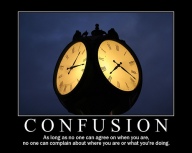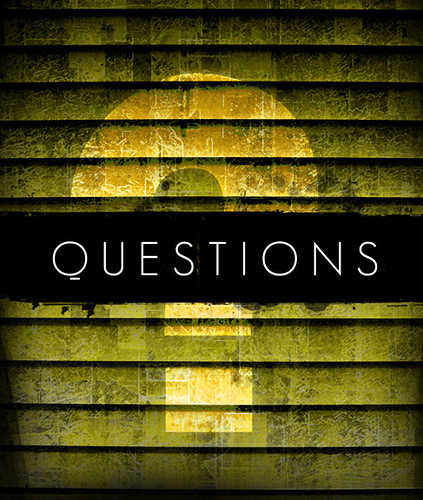Sep 07
20103
commentsIn Conversation, Courageous Living, Frustration, Growth, Living Life Well, Personal Development
TagsCross Country Life Meaning and Purpose Questions Stepping Into Life
The Events of Life & How They Can Shape Who We Become
As I observe life, its complexity of shaping forces at work, I am impacted by the way events have the power to literally mold who we become.
My eldest daughter is in cross-country. With all of her effort she has applied herself to optimize her abilities to run cross-country in such a way that she is able to cross the finish line with joy and personal satisfaction.
Much to her recent disappointment, she has experienced some difficulties with her breathing (lungs) and is in need of an evaluation to find the source of the problem. She has worked so hard to improve her pace, stride, and consequently her finishing time.
Imagine living life, “daily training and working on your stride, pace and qualifying time” endeavoring to “finish well” and none of your training or effort had direct influence on your “shaping ability” or the “form” that you were trying to improve. How would you feel about your life? What types of statements would you be making about yourself? How despairing and meaningless life would become.
John Sanford, says that the process of entering God’s Kingdom is a process of becoming an individual. It requires stepping apart from the crowd, from the mass movements that are always the easier way, “to suffer the pain and difficulty of becoming a conscious person.”
Life, as I have mentioned, is the most valued, meaningful, and intense  conversation you will have. Everyday there is a new conversation. Remnants of yesterday’s conversation may still be lingering and may need some attention. Anticipation for today’s conversation engages with day-to-day events and becoming more aware (conscious) of how they are shaping us and molding us into our true identity. If we are able to give consent to God (surrender), we can engage most deeply in a process allowing ourselves to be changed into an identity that fulfills the purposes of God while we are here on earth. As we do this, our conversations with or about tomorrow will not be filled with fear or anxiety, rather, a priceless creation that extends beyond our own ability or measure: the fulfillment of LIFE itself.
conversation you will have. Everyday there is a new conversation. Remnants of yesterday’s conversation may still be lingering and may need some attention. Anticipation for today’s conversation engages with day-to-day events and becoming more aware (conscious) of how they are shaping us and molding us into our true identity. If we are able to give consent to God (surrender), we can engage most deeply in a process allowing ourselves to be changed into an identity that fulfills the purposes of God while we are here on earth. As we do this, our conversations with or about tomorrow will not be filled with fear or anxiety, rather, a priceless creation that extends beyond our own ability or measure: the fulfillment of LIFE itself.


 When we begin to notice the emotional stickiness of a conversation, be aware that something is happening. The flow is absorbed by added mental processing to overcome and guarantee refuge in the event that there is not receptivity or connection. Flight, fight, or freeze, typically is our dominant response.
When we begin to notice the emotional stickiness of a conversation, be aware that something is happening. The flow is absorbed by added mental processing to overcome and guarantee refuge in the event that there is not receptivity or connection. Flight, fight, or freeze, typically is our dominant response.





